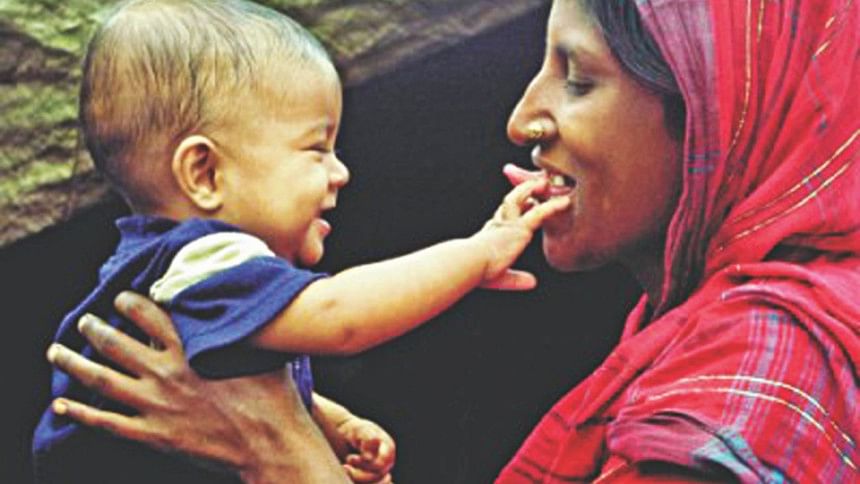Safe motherhood is a human right

SAFE motherhood means ensuring that all women receive the care they need to be safe and healthy throughout pregnancy and childbirth. Woman right to safe motherhood is not only a right to health; it is a right to life. It is a right to which governments are to be held accountable in monitoring the implementation of human rights treaties.
According to UN and WHO estimates, every day about 800 young women in the prime of their lives give up their life in the process of giving us a new life. In 2013, 289,000 women died of complications of pregnancy and childbirth. At least 7 million women who survive childbirth suffer serious health problems, and a further 50 million women suffer adverse health consequences after childbirth. Of which, 99% occur in developing countries. In Bangladesh every year 12,000 women die due to pregnancy or pregnancy-related causes.
The human right to health was proclaimed in the international human rights treaty, the International Covenant on Economic, Social and Cultural Rights (Article 12) and also United Nations General Assembly Resolution (A/61/338, 13 September, 2006) are recognising the right of everyone to the enjoyment of the highest attainable standard of physical and mental health and also Article 25 (2) of the UDHR states that, motherhood and childhood are entitled to special care and protection. More specifically, the Convention on the Elimination of All Forms of Discrimination against Women , commits governments to “ensure to women appropriate services in connection with pregnancy, confinement and the post-natal period as well as adequate nutrition during pregnancy and lactation.” The UN Human Rights Council Resolution on Preventable Maternal Mortality and Morbidity and Human Rights (A/HRC/11/L. 16/Rev.1, 16 June 2009) recognises eliminating preventable maternal mortality and morbidity, development and human rights challenge, and that a human rights analysis of preventable maternal mortality and morbidity. Two treaty bodies, the Committee on the Elimination of Discrimination against Women (CEDAW) and the Human Rights Committee (HRC), have framed maternal mortality as a violation of women's right to life. In Air India Etc. Etc vs Nergesh Meerza & Ors. Etc. Etc., 1981 AIR 1829, 1982 SCR (1) 438, the Supreme Court of India held that, right to safe motherhood is the part of right to life and liberty, subsequently in Laxmi Mandal v. Deen Dayal Harinagar Hospital & Ors. (W.P. © 8852/2008), the Delhi High Court held that, maternal mortality is a violation of a woman's fundamental right to life.
Bangladesh is on its way to achieving the Millennium Development (MDG 5) target of reducing the maternal mortality ratio by three-quarters between 1990 and 2015, but the rate of decline needs to speed up over the next decade. Though Bangladesh has national policies and programme to reduce the maternal mortality ratio but yet we have no national legislation to ensure the safe motherhood. Also there is no specific constitutional provision to uphold the safe motherhood. Woman's takes a solemn duty to give birth a new life, so we must recognise their fundamental right to safe motherhood by constitutional way. The state has rigorous responsibility in making motherhood safety for all women. Though Bangladesh has ratified and agreed with above mentioned international instruments but to ensure safe motherhood we have to incorporate with domestic legislation.
Women have the right not to die needlessly in pregnancy or childbirth. When women are risking death to give life, they are entitled to have their own right to life and health protected. A pregnant woman carries the future generation of a country. Due to ensure healthy and good future generation at first we must ensure the safe motherhood. Government has an obligation to ensure the provision of pregnancy-related care in a way that respects the dignity and rights of all women and families, and respect the principles of non-discrimination, equity, transparency, accountability, and participation. Carol Bellamy, Executive Director, UNICEF says that, “Women and girls are the key. If we fail them, we fail their children, we fail their communities, and we fail the very idea of human progress”
The writer is a student of LL.M. at South Asian University, New Delhi, India.

 For all latest news, follow The Daily Star's Google News channel.
For all latest news, follow The Daily Star's Google News channel. 



Comments